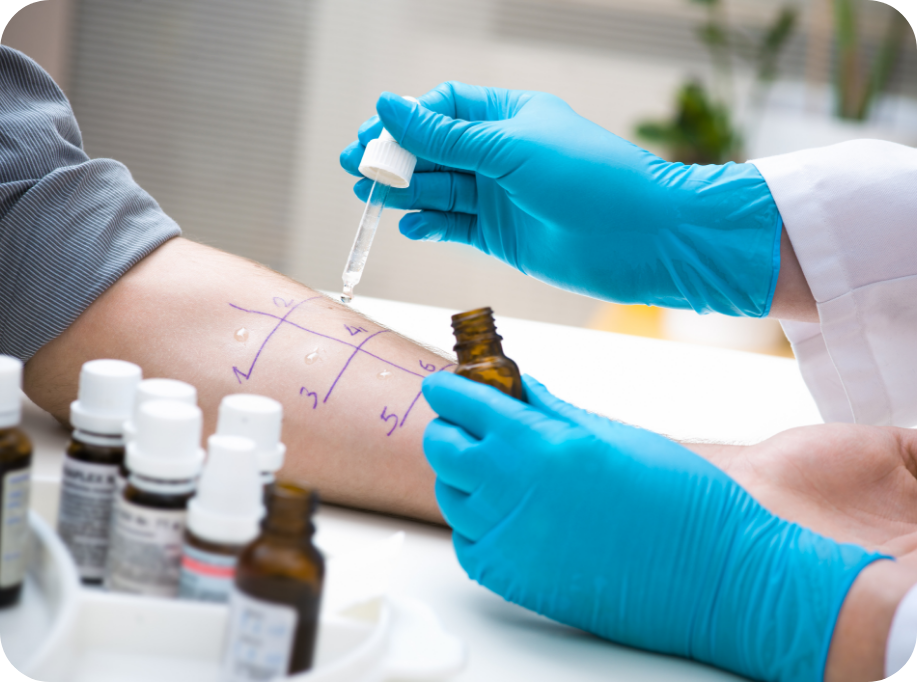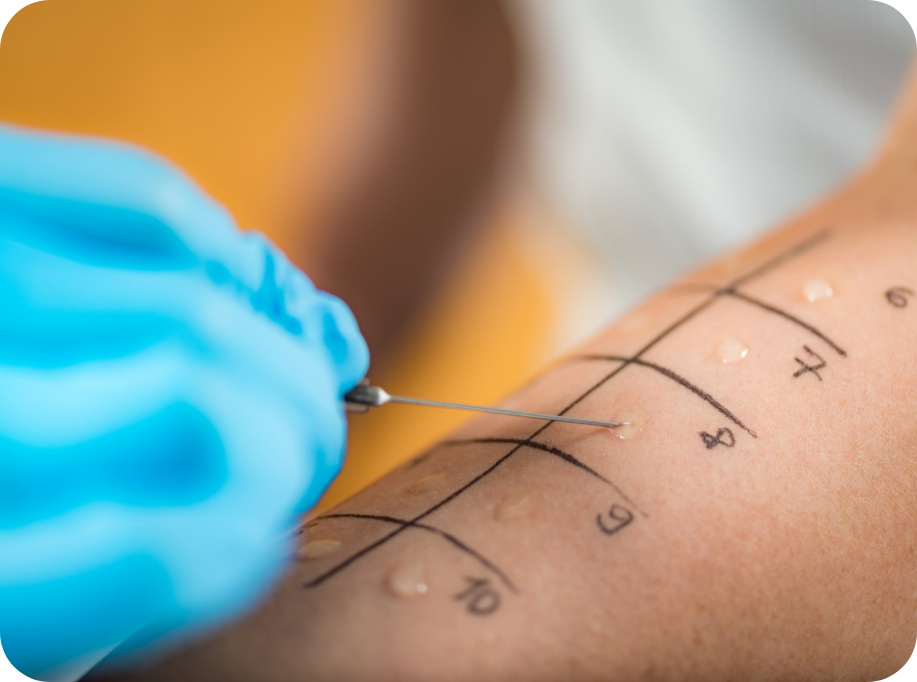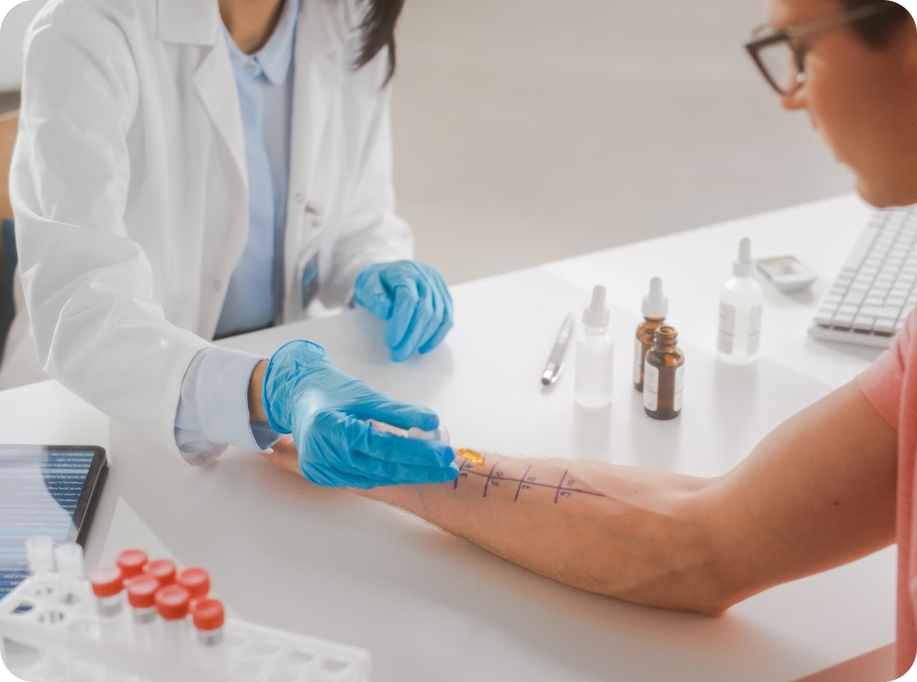
Skin Allergy Test in New Jersey and New York
Allergy skin testing is performed at Impact Medical in order to identify ones allergic triggers. Advantages of allergy skin testing in NJ and NY include rapid results (within minutes) and is less invasive than laboratory tests.







